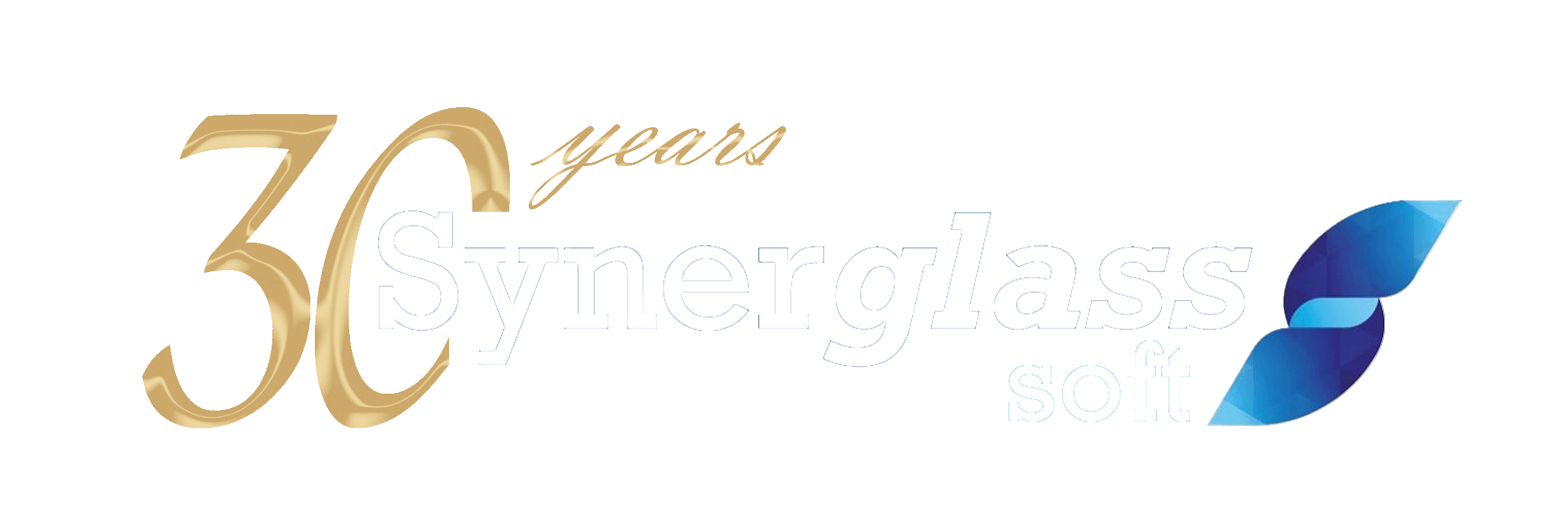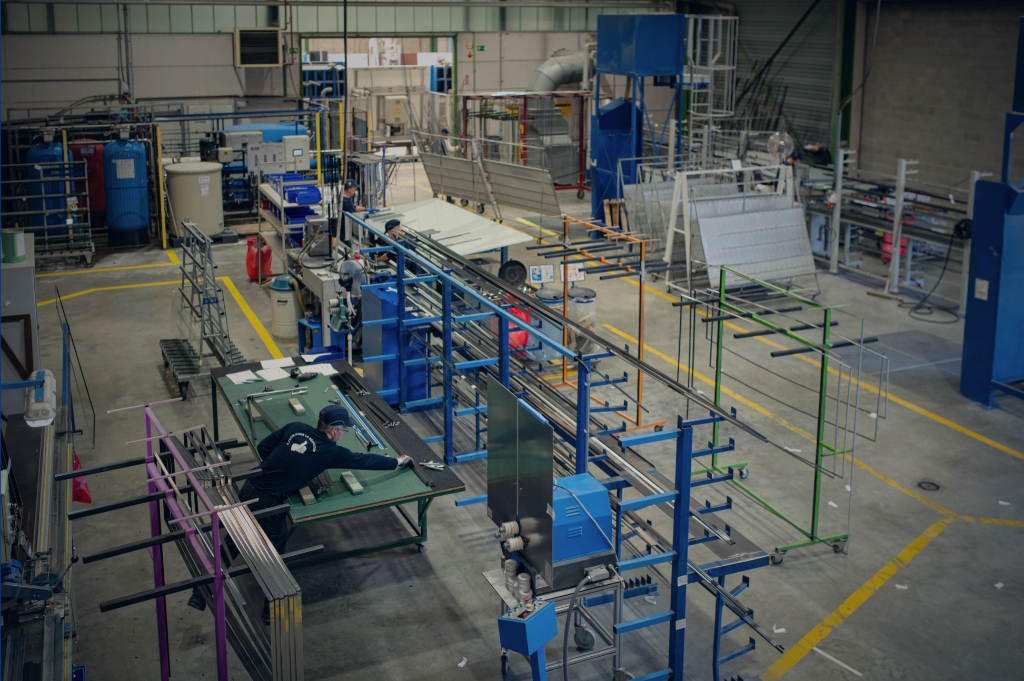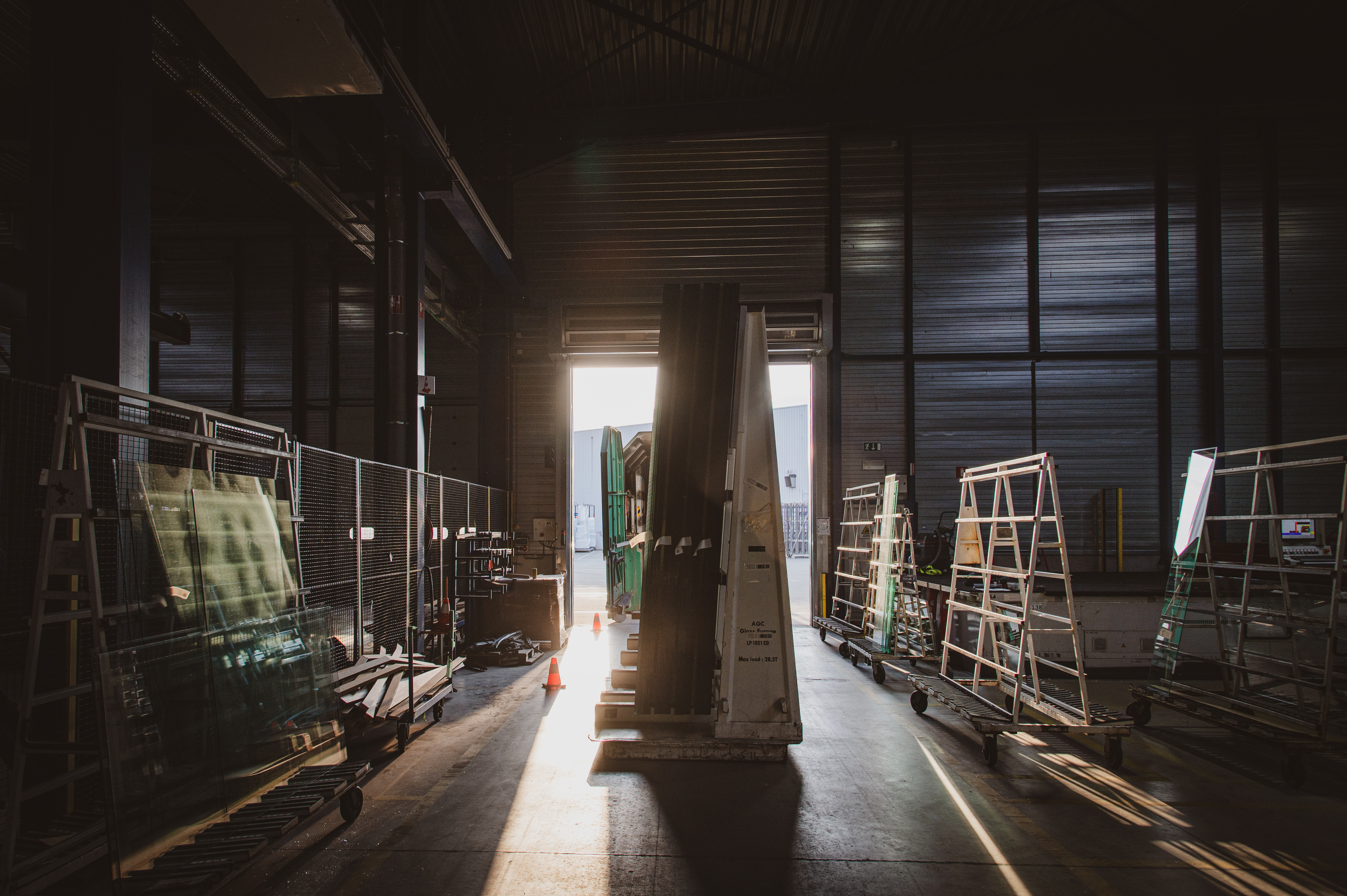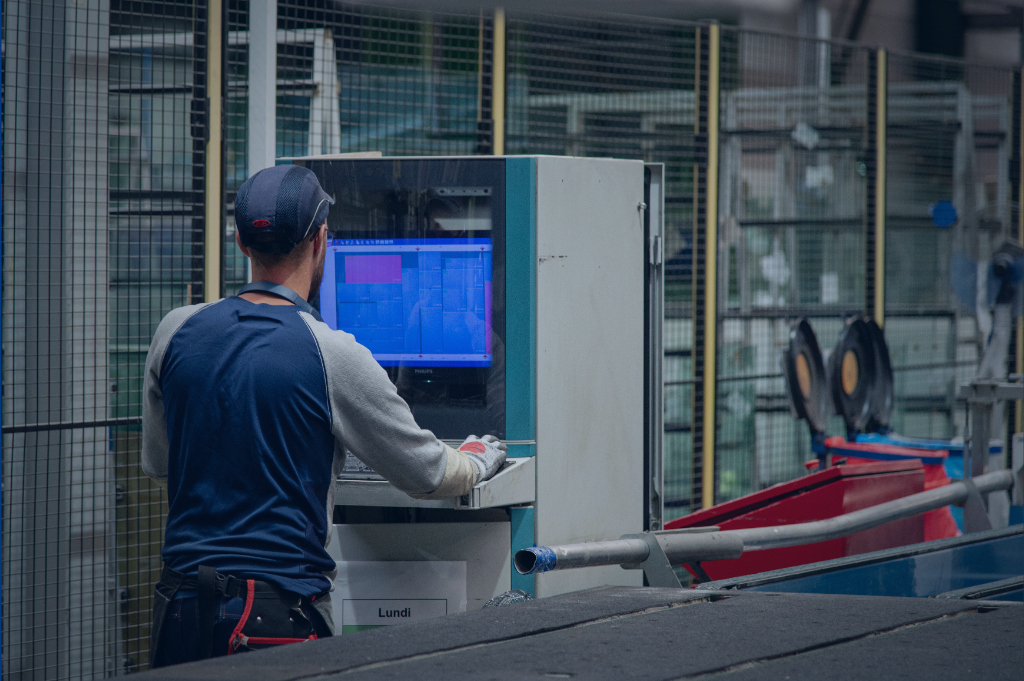If you’re a glass processor, you know how difficult it is to keep production running smoothly while meeting tight deadlines and minimizing scrap rates. But what if the biggest challenge isn’t your equipment or workforce – but your ERP system? Every wasted minute costs money, and outdated, rigid systems are slowing you down. When efficiency suffers, deadlines slip, and waste piles up. The question is: can you afford to let your ERP hold you back any longer?
We’ve worked with many glass processors who told us the same thing: their current ERP is slow to update, difficult to customize, and causes major disruptions when changes are needed. We understand the frustration of battling an ERP system that doesn’t fit your workflow. That’s why we help manufacturers switch to modular software – designed to adapt to your business, not the other way around.
In this article, you’ll learn five key ways modular ERP can transform your glass processing operations – offering flexibility, seamless updates, and a system designed to scale with your business, working for you – not against you.
The glass industry’s growing challenge with ERP systems
Why glass processors struggle with traditional ERP systems
For years, glass processors have relied on monolithic ERP systems – large, rigid software suites where every function is deeply interconnected. While these systems worked in the past, they created several challenges:
- Slow and risky updates – Rolling out new features or fixes often disrupted operations, leading to downtime.
- High customization costs – Adapting the system to specific glass processing needs meant expensive, one-off developments.
- Lack of flexibility – Any modification risked breaking other system components, making even small changes a major concern.
- Limited scalability – As glass businesses expanded, they struggled to integrate new technologies or add capabilities without a full system overhaul.
The rise of modular ERP systems
To address these pain points, modular ERP solutions have emerged, designed to be flexible, scalable, and user-centric. Rather than forcing glass processors into a rigid system, modular ERP allows them to pick and choose the functionalities you need, seamlessly integrating new capabilities without disrupting the entire system. Whether it’s Symbiose or another modular ERP solution, the key advantage is adaptability – ensuring you can modernize at your own pace without overhauling your entire infrastructure.
Now that we’ve explored the common challenges with traditional ERP, let’s take a closer look at how modular ERP systems solve these pain points. Here are five major ways modular ERP can transform glass processing efficiency – helping you work smarter, not harder.
5 ways modular ERP transforms glass processing efficiency
With the challenges of traditional ERP systems in mind, it’s clear why a modular approach is the smarter choice. Instead of forcing a rigid, all-or-nothing system, modular ERP solutions like Symbiose give glass processors more control, flexibility, and efficiency.
Benefit #1 – Modular ERP updates without downtime or disruptions
With traditional monolithic ERP systems, software updates were a major operational risk. Companies would only release three to four major updates per year, leading to periods of instability, long testing phases, and disruptions across multiple departments.
With modular, cloud-based ERP solutions using the SaaS model, updates are delivered automatically without downtime or IT intervention. Unlike on-premise ERPs, where businesses need to schedule and manually deploy updates, a SaaS-based modular ERP ensures:
- Seamless updates in the background – No need for costly IT maintenance or system overhauls.
- Always on the latest version – Glass processors always benefit from the most up-to-date features and security enhancements.
- No infrastructure management – The ERP provider handles hosting, backups, and performance optimization, reducing internal IT workload.
What this means for glass manufacturers: Instead of worrying about servers, patches, or versioning issues, businesses can focus on production and operations while the system remains automatically updated and optimized.
Seamless updates keep your system running smoothly, but what about tailoring it to your specific needs? That’s where modular ERP’s flexibility makes a real difference.
Benefit #2 – Modular ERP adapts without costly customizations or IT headaches
Glass processors often require highly tailored solutions to handle their specific workflows, but excessive customization in traditional ERP systems creates long-term problems:
- Over-customization makes future upgrades complex and expensive.
- Unique modifications often lead to interdependent, hard-to-maintain code.
- Any system-wide update risks breaking those customizations.
Modular ERP solutions solve this problem by offering:
- Standalone business modules – Instead of modifying the core system, companies can activate pre-built, industry-specific modules (e.g., glass cutting optimization, logistics, or invoicing).
- Plug-and-play adaptability – Need a new feature? Activate a module. Not happy with it? Turn it off. This allows glass processors to scale their ERP functionalities on demand, rather than overhauling their entire system.
- Multi-technology compatibility – Modern modular ERPs like Symbiose are not locked into a single programming language. Companies can integrate custom-built microservices or third-party solutions without disrupting their core operations.
What this means for glass manufacturers: A modular ERP adapts to your business, not the other way around. You can tailor your system to your exact needs without technical debt or upgrade headaches.
While customization is important, stability is just as critical. A system that crashes frequently can bring production to a standstill. Thankfully, modular ERP ensures reliable performance while maintaining flexibility.
Benefit #3 – Modular ERP prevents system crashes and keeps performance high
One of the biggest frustrations with legacy ERP systems is that they become bloated over time. With every new customer-specific modification, the system grows more complex, increasing the risk of errors and slowdowns.
With a modular ERP:
- Services are independent – If one module encounters an issue, the rest of the system remains unaffected. No more “one small change crashes the entire ERP.”
- Optimized performance monitoring – Symbiose, for example, integrates observability tools that proactively detect system slowdowns, reducing the need for reactive troubleshooting.
- Database integrity via APIs – Older ERP systems often gave clients direct access to databases, allowing them to modify records manually – causing inconsistencies and data corruption. Modular ERP systems enforce structured API-based access, ensuring that changes follow proper workflows.
What this means for glass manufacturers: More reliable software, fewer technical issues, and faster overall system performance.
Even with a stable system, an ERP is only as good as its usability. A complex, outdated interface can slow your team down – but modular ERP is designed for a seamless user experience
Benefit #4 – Modular ERP makes work easier with a modern, user-friendly interface
Legacy ERP systems often neglect user experience, leading to frustration among employees. Modular ERP solutions are built with modern UI/UX principles, ensuring:
- Mobile & tablet optimization – Glass processors working on the shop floor or in warehouses need responsive, touch-friendly interfaces.
- Accessibility features – Systems are designed to accommodate colorblind users, workers using gloves, and non-desk employees.
- Role-based dashboards – Each user sees only the information they need, reducing clutter and making navigation more intuitive.
What this means for glass manufacturers: A system that is easy to use, easy to train on, and reduces errors caused by poor interface design.
A user-friendly ERP saves time, but what about the financial strain of maintaining an outdated system? Traditional ERP solutions come with hidden costs – expensive updates, IT maintenance, and rigid pricing models that don’t scale. This is where modular ERP makes a real difference.
Benefit #5 – Modular ERP reduces costs and grows with your glass business
Traditional ERP systems come with heavy upfront costs, including software licenses, infrastructure, and ongoing maintenance. Glass processors often had to make long-term investments in hardware and IT teams to maintain on-premise solutions.
With a SaaS-based modular ERP, these challenges disappear:
- Subscription-based pricing – Businesses only pay for what they use, making costs predictable and scalable.
- No expensive hardware or IT teams – The cloud provider manages the infrastructure, removing the need for in-house server maintenance.
- Elastic scalability – As your glass processing business grows, you can easily add users or modules without major system overhauls.
- Built-in security & compliance – SaaS ERP solutions offer automatic backups, disaster recovery, and enterprise-grade security, ensuring that business-critical data is always protected.
What this means for glass manufacturers: A lower total cost of ownership, increased scalability, and the ability to grow without IT constraints.
If you want to learn more about how modular ERP pricing works, check out our cost-saving guide for understanding modular ERP pricing.
Why modular ERP is the future for glass processors
Traditional ERP systems often create unnecessary headaches, slowing down glass processors with outdated technology and rigid structures. But modular ERP offers a smarter way forward – eliminating inefficiencies, reducing disruptions, and allowing businesses to scale at their own pace.
If you’ve ever felt trapped by an inflexible ERP system, you’re not alone. Many glass manufacturers have faced these challenges, dealing with costly customizations, long deployment times, and software that no longer meets their needs.
At Synerglass-Soft, we’ve helped numerous glass manufacturers transition to modular ERP solutions built to their needs. We understand your challenges – and we’re here to help.
The good news? Modular ERP solutions provide a practical way to regain control, adapt to your evolving business needs, and future-proof your operations. If you want to learn more about how modular ERP pricing works or what to expect when upgrading, check out these resources:
- Understanding Modular ERP Pricing – A Cost-Saving Guide for Glass Processors
- Cost Breakdown: What to Expect When Upgrading to Symbiose ERP
Tired of ERP headaches? Switch to a modular solution that adapts to your needs, reduces costs, and eliminates disruptions. Want to see modular ERP in action? Schedule a personalized demo to explore how it fits your business.




